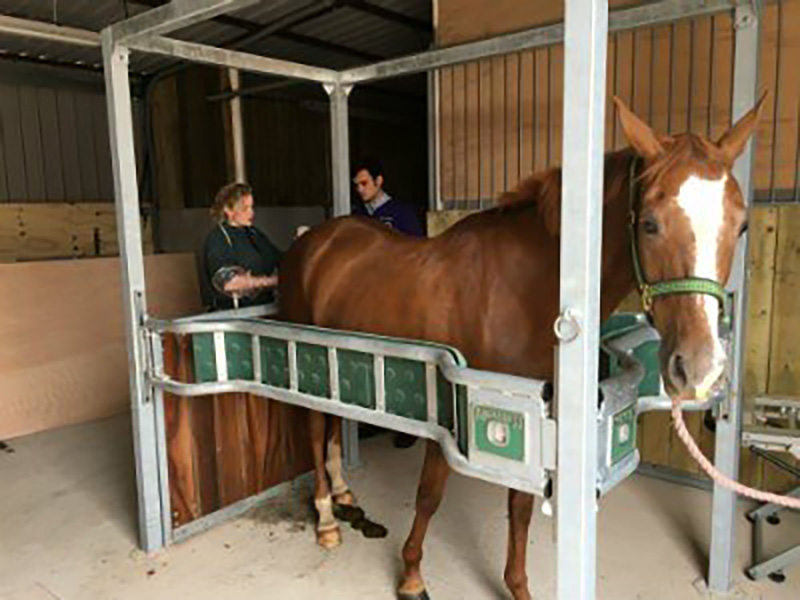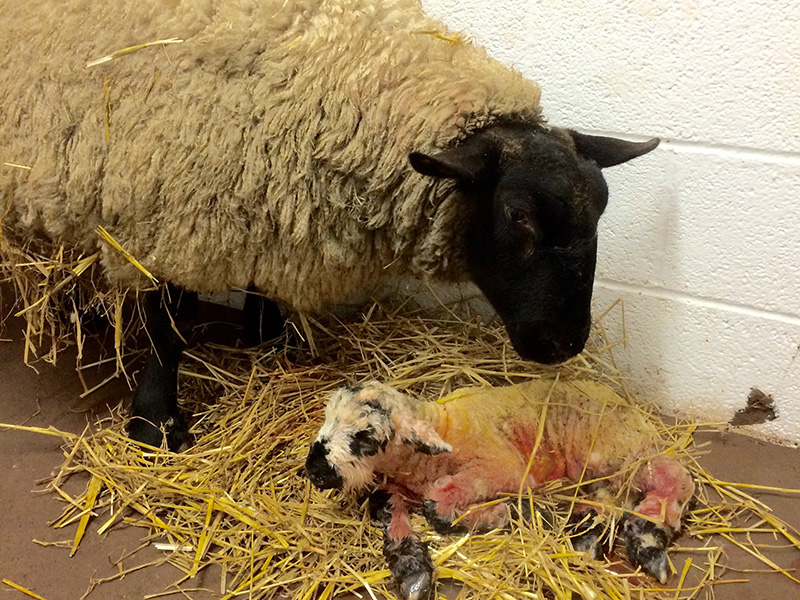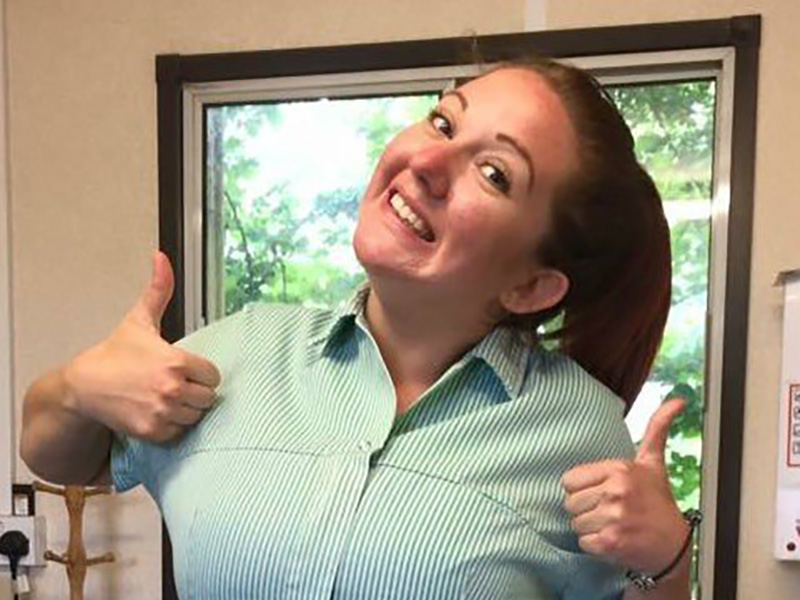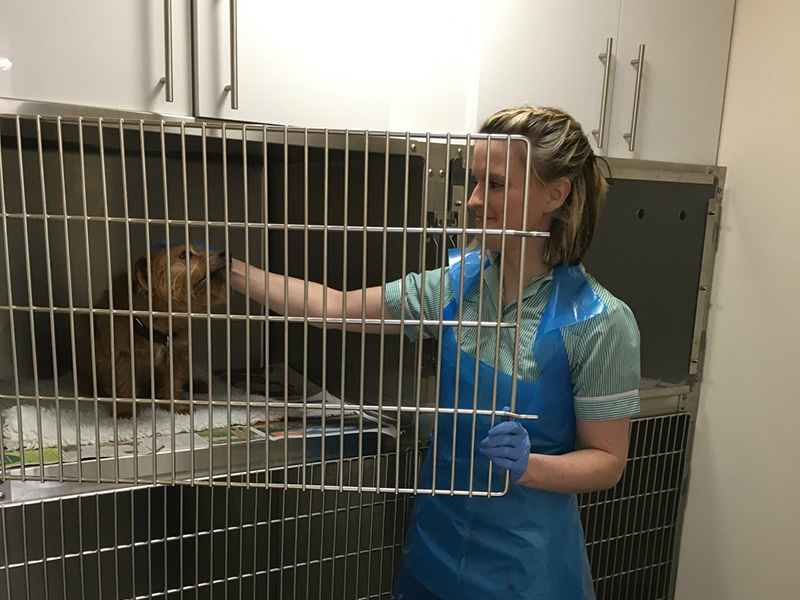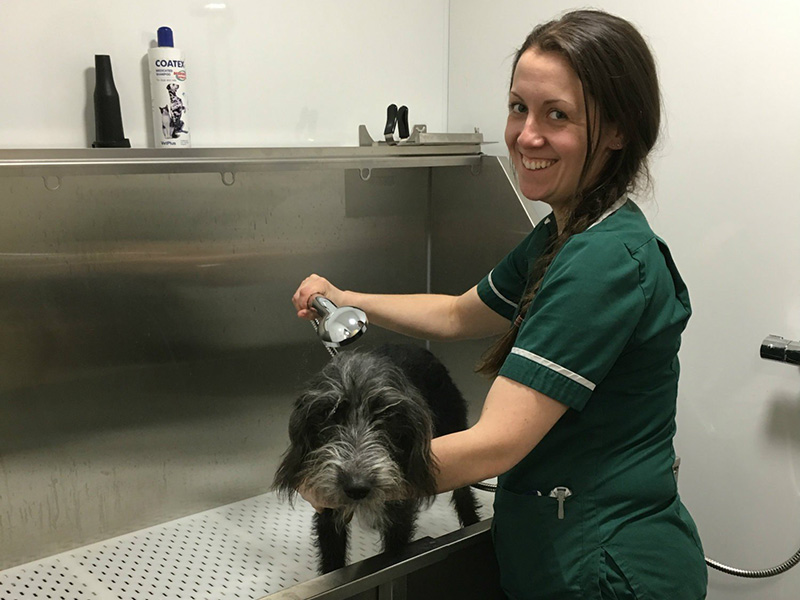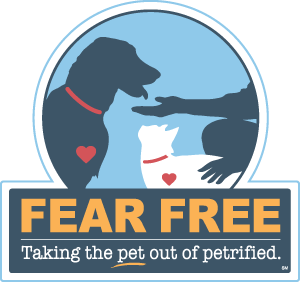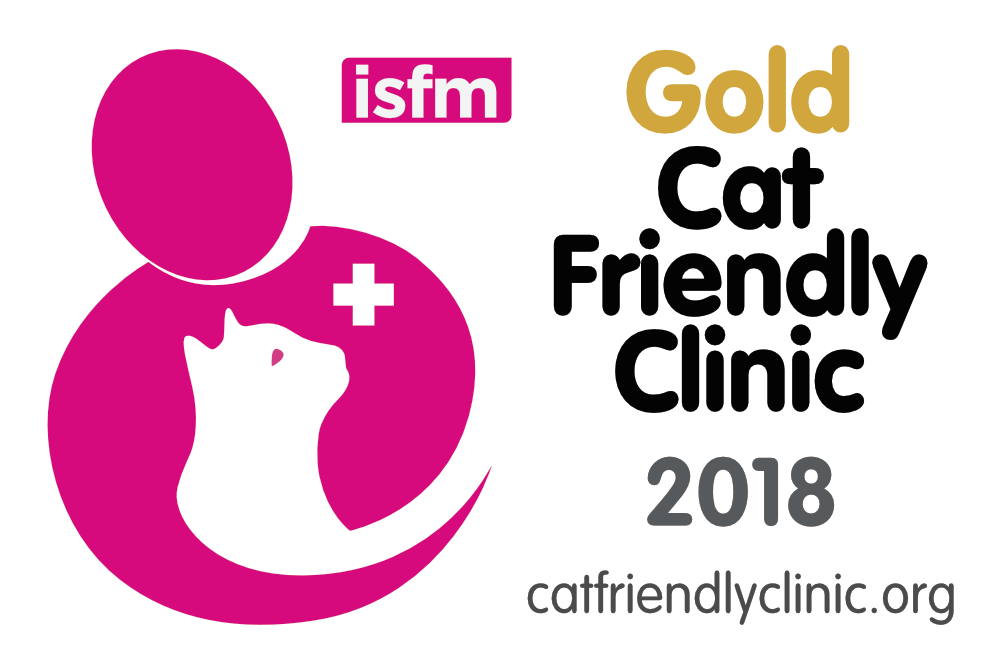Canine Massage
What is Clinical Massage?
Clinical canine massage is a non-invasive therapy used to help manage orthopaedic conditions, rehabilitate soft tissue injuries, speed up post operative recovery, and release sore, tight muscles in dogs. It involves using a blend of techniques including Swedish, Deep Tissue, and Sports massage, Myofascial Release as well as the unique Lenton Method®.
In order to bring about movement, muscles pull on bones. A soft tissue injury (such as a strain), or joint issue (such as arthritis, hip, or elbow dysplasia) will have a direct impact on the attached muscles, as well as neighbouring ones, meaning that posture, gait, and performance will be affected. Muscles become sore and tight, painful trigger points (knots) may form in the muscles, and areas of overcompensation may become problematic. If left untreated, these are likely to cause pain to your dog, and have an impact on their quality of life.
Clinical Massage can help to maintain and improve quality of life, mobility, and activity levels in dogs of all ages, helps prevent injuries, and can even help dogs with anxiety, nervous behaviour and/or depression. It is also an invaluable tool in maintaining good muscular health in pets and sporting dogs with no known muscular or skeletal issues.
Clinical Massage may be used to treat dogs of all ages, and typically gains results in 1-3 treatments. Recent clinical trials by Winchester University into the efficacy of Canine Massage Therapy (namely, The Lenton Method®), found that in a study of 527 dogs, 95% of dogs responded positively to Clinical Massage. You can read the full report here: https://bvajournals.onlinelibrary.wiley.com/doi/10.1002/vetr.586
Our in-house Clinical Massage Practitioner is Rachel. She has been a Veterinary Nurse for over 18 years, and has trained with the Canine Massage Therapy Centre on their 2-year Practitioner Programme. Rachel treats all types of dogs, with all sorts of conditions, helping to rehabilitate soft tissue problems, as well as supporting orthopaedic conditions such as Arthritis and hip dysplasia. Rachel is also a member of the Canine Massage Guild, and with almost two decades of experience working in the Veterinary industry, you can rest assured that your dog will be in safe hands.
Conditions that may benefit from Clinical Massage
If your dog shows any of these signs then Clinical Massage is highly likely to help:
- Stiffness
- Soreness
- Unable or struggling to go up or down stairs
- Unable or struggling to get in or out of car
- Unable or struggling to jump onto sofa or bed
- Mobility issues
- Withdrawn, quieter or isolating themselves
- Lost their ‘sparkle’
- Depression
- Reluctant to be groomed
- Posture changes
- Struggling to sit, lie down or stand
- Difficulty sleeping, or increased sleeping
- Coat changes or flicks
- Uneven nail wear
- Skin twitches or “tickly” areas
- Old before their time
- Unwilling to go for walks, or inability to walk as far as before
- Back, neck, or hip issues
- Agility performance issues, e.g., pole knocking, measuring
Orthopaedic conditions
Orthopaedic conditions involve the bones and joints. Some common conditions include:
- Osteoarthritis
- Hip and elbow dysplasia
- Luxating patella
- Spondylosis
- Osteochondrosis dessicans
Clinical massage can help improve the symptoms of orthopaedic disease by easing sore, tight muscles that are attached to these areas of bony dysfunction.
Soft tissues injuries
Soft tissue injuries are one of the most common injuries seen in the dog. They can occur at any time, and can result from activities such as jumping, twisting, slipping, chasing after a ball, boisterous play, agility, and repetitive, unhealthy motions.
Injuries to muscles or ligaments may result in scar tissue formation. The scar tissue forms a tough restrictive band of tissue that weakens the tissue and reduces its ability to function correctly. Clinical massage can re-model the scar tissue and help improve healing rates. It can also improve elasticity by improving the flexibility of the muscle surrounding the scar tissue.
Examples of soft tissue issues include:
- Muscle strains
- Ligament sprains or tears, for example, of the cruciate ligament
- Myofascial Pain
- Trigger points
- Myalgia
- Hyper- or hypo-tonicity
Neurological conditions
Massage may also be beneficial in aiding the treatment and management of neurological problems such as:
- Intervertebral disc disease
- Degenerative myopathy
- Muscle spasms





